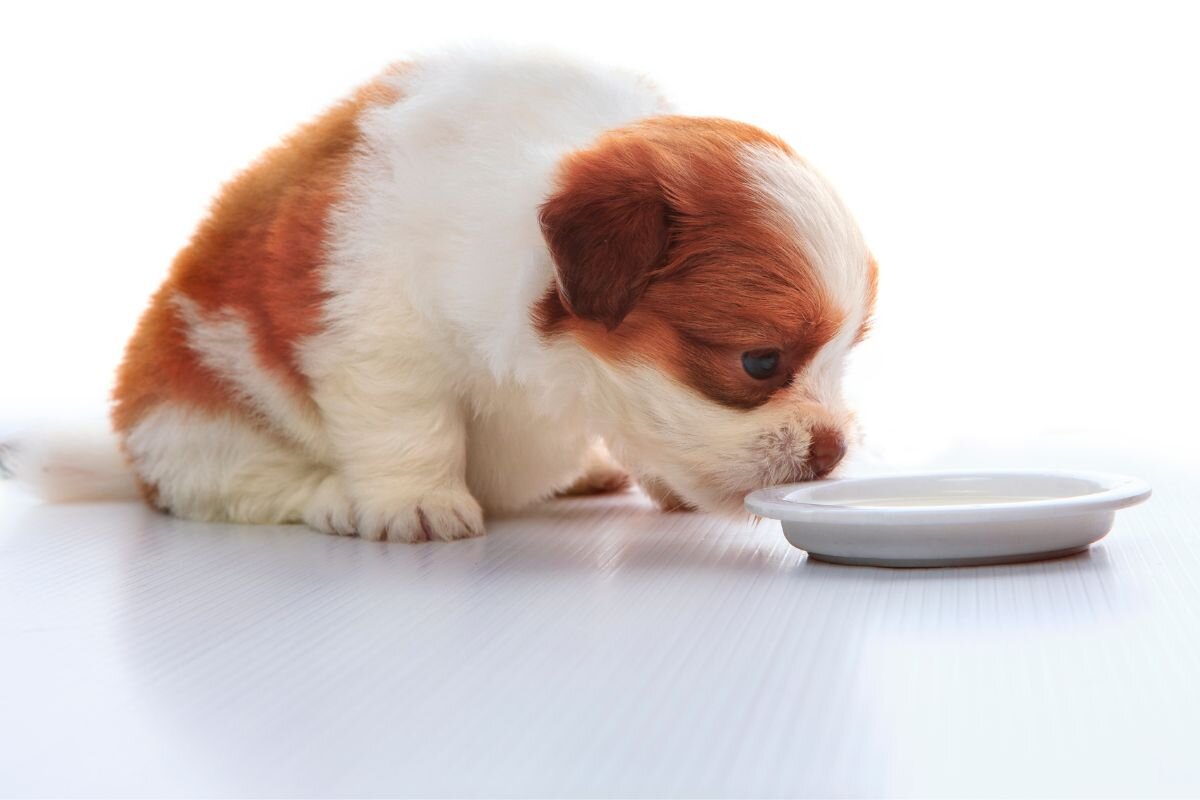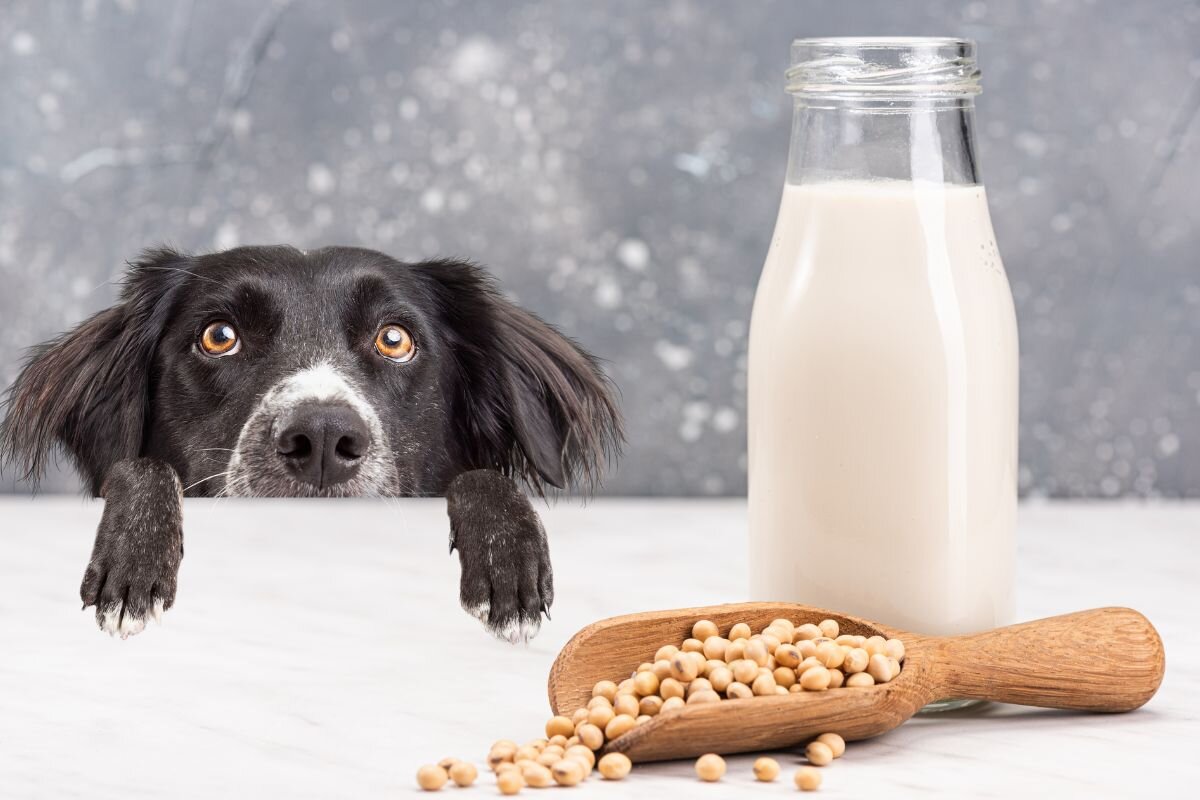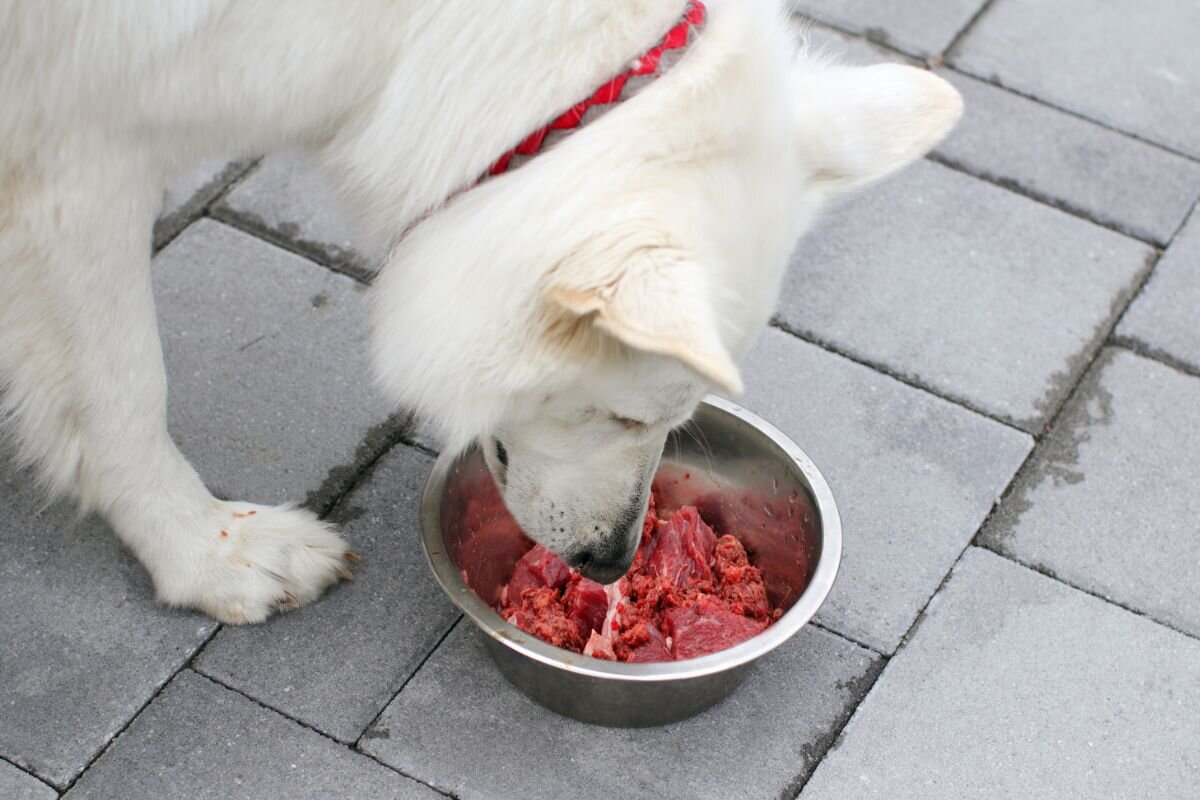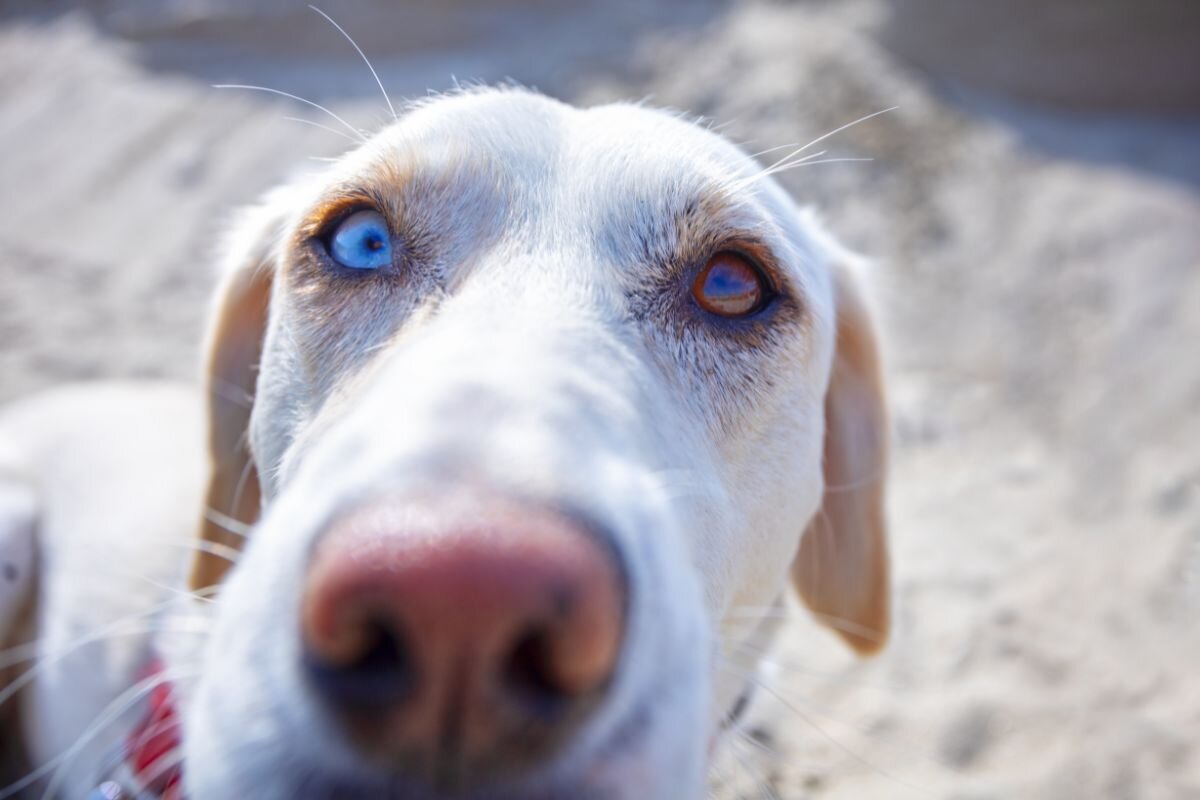When you imagine a pet drinking milk, you probably think of a cat enjoying licking milk from a bowl. But did you know that veterinarians do not recommend giving milk to cats? What about our four-legged friends? Can dogs drink milk?
Many dogs enjoy indulging in milk, but that does not mean that dairy products are automatically beneficial for our pets. Therefore, many owners wonder - can dogs drink milk? This question cannot be answered with a simple "yes" or "no". However, there are some points to consider if you allow your dog to drink milk.
Can dogs drink milk?
Whether you can give milk to a dog depends on the individual characteristics of the animal. If a dog drinks 50 grams of milk, nothing terrible will happen. But, as with many other products, milk should be given to a dog in moderate amounts. Most dogs can drink cow's or goat's milk. However, it is important to note that some animals may have an allergy or lactose intolerance. Especially in puppies, the consumption of milk can cause gastrointestinal upset.
Why can't puppies have milk?
You may wonder why puppies should not be given milk. After all, they drink mother's milk? The issue is the lactose content in milk. Special enzyme lactase is needed to digest milk sugar (lactose).
As long as puppies are breastfeeding from their mother, they have an excess of this enzyme. If puppies begin to be fed with industrial feed, the amount of lactase in the organism drastically decreases, so they become more intolerant to lactose.
How much milk can you give a dog?
You can give milk to a dog in small quantities. Sometimes a few tablespoons of cow's or goat's milk can be a tasty treat. However, offering a full bowl of milk to a dog should be avoided, as it can cause side effects.
Possible consequences of a dog consuming too much milk:
- Diarrhea;
- Vomiting;
- Soft feces.
Lactose intolerance in dogs
As puppies progress in development, they produce less lactase, which essentially makes most dogs lactose intolerant. Dogs with lactose intolerance may experience the same symptoms as humans. Lactose intolerance varies in severity, so some dogs drink milk and experience only mild gastrointestinal symptoms or do not experience them at all, while in others they are more pronounced. Therefore, the question of whether dogs can drink milk largely depends on the specific dog. In addition, milk and dairy products, such as cheese, are common causes of food allergies in dogs.
How to understand if you can give a dog milk?
To check how well a dog tolerates milk, you can give it a small amount of milk for several days. A small spoonful of milk a day is sufficient for this test. During the test, carefully observe the dog and monitor the appearance of symptoms of lactose intolerance or food allergy.
If a dog is lactose intolerant, the following allergic reactions may occur:
- Skin irritation.
- Redness.
- Itching.
- Stomach pain.
- Vomiting.
- Diarrhea.
Can dogs have lactose-free milk?
Feeding dogs lactose-free milk may seem like an interesting idea to some owners. However, it is important to remember that adult dogs do not need a breast milk substitute. Of course, a small amount of lactose-free milk is unlikely to be harmful. However, it is important to remember that under normal conditions, animals are better off drinking regular fresh water.
Whether milk contains lactose or not is irrelevant. Lactose-free milk is a processed product of drinking milk in which lactose is hydrolyzed or removed. Therefore, you are still feeding your dog a dairy product, which can lead to intolerance.
Alternative to milk for dogs
I have compiled a list of dairy products that are alternatives to traditional cow's milk and are better tolerated by dogs:
- Goat's milk - contains up to 20% less lactose.
- Yogurt - contains up to 35% less lactose.
- Cottage cheese - contains up to 50% less lactose.
- Low-fat cottage cheese - contains up to 60% less lactose.
Low-fat and pasteurized milk, which is part of low-fat cottage cheese, contains only a small amount of lactose. It is less calorie-dense than traditional cow's milk and is well tolerated by most dogs.
Can dogs drink milk: conclusion?
If dairy products with low lactose content are well tolerated by the dog, and it regularly receives them in small amounts with food, you can supplement its diet.
Whether dogs can drink milk depends on the individual tolerance of the dog. Typically, giving cow's milk to dogs is not recommended. The risk of intolerance outweighs the positive properties of milk. Proteins, vitamins, and minerals found in milk are not necessary for a dog if you feed it high-quality complete food. Also, milk contains a lot of fat, which can lead to obesity in dogs.







